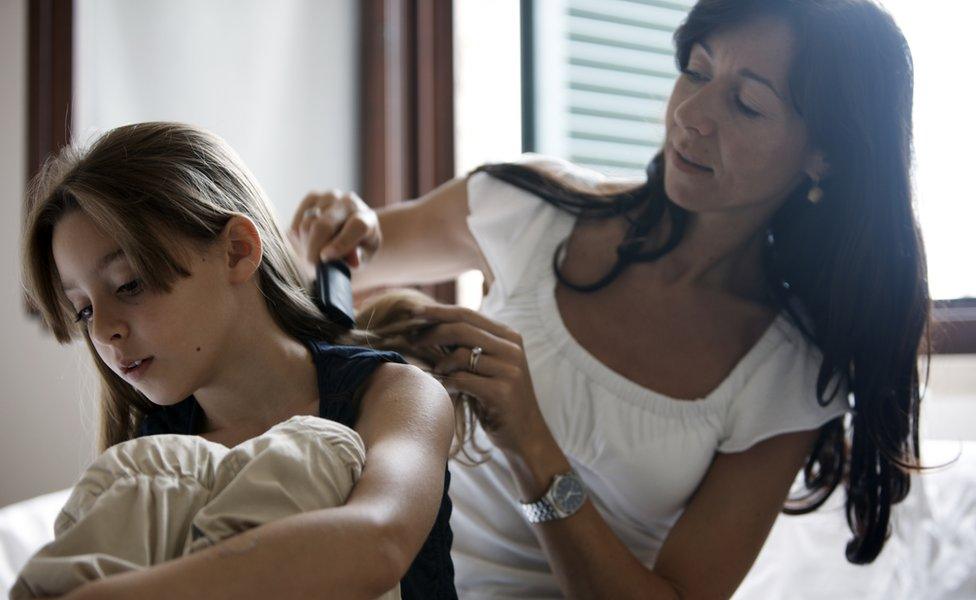Having children carries big pay penalty, says think tank
- Published
- comments

Female workers continue to face a "rapid rise" in pay inequality when they get into their 30s and 40s, according to the Resolution Foundation.
Women born between 1981 and 2000 can expect to be paid 9% less than men when they hit their 30th birthday, it said.
That compares with a 5% pay difference between men and women in their 20s.
As a result, having children carries a "sharp and long-lasting" pay penalty, the think-tank concluded.
It said that over a lifetime, women can lose hundreds of thousands of pounds.
"Young women today face relatively little disadvantage in terms of their pay packets compared to what their parents' and grandparents' generation faced," said Laura Gardiner, senior policy analyst at the Resolution Foundation.
"But while many millennial women haven't experienced much of a pay gap yet, most probably will once they reach their 30s, when they start having children. What's more this pay penalty is big and long-lasting, and remains for younger generations despite the progress in early careers."
Is the gender pay gap justified?
The gender pay gap once women reach their 30s has changed very little in a generation, the research showed.
Last year the Institute for Fiscal Studies (IFS) published similar research, external, concluding that men in their 30s tend to see their wages increase, while women's wages tend to plateau.
Jo Swinson, a former member of the coalition government and now director of Equal Power Consulting, told the BBC that sexism was still partly to blame.
"There is some occupational segregation, with more men going into science and engineering-type roles, but we also know there is discrimination at work."
However, others say the problem is not related to gender discrimination, but is due to more women of child-bearing age working in part-time jobs than men.
On average, part-time jobs carry lower pay rates than full-time jobs.



The Resolution Foundation is calling on policymakers and businesses to work harder to eliminate the pay gap altogether.
But Jill Kirby, a former director of the Centre for Policy Studies think tank, said change should not be forced on women if they do not want it.
"Women who are highly-qualified will choose to take less demanding jobs - more nine to five, and less nine to nine-type jobs - when they have a family, because they actually feel there are better things in life than spending all their time at the office," she told the BBC.
From April 2018, companies with more than 250 employees will be required to publish detailed information about the size of the pay gap within their workforces.
A government spokesperson said: "The gender pay gap is at a record low, but we have to push further to eliminate it completely. Shining a light on organisations' pay gaps means employers can take action to tackle the causes and drive change."
- Published4 January 2017

- Published24 September 2016

- Published29 August 2016
